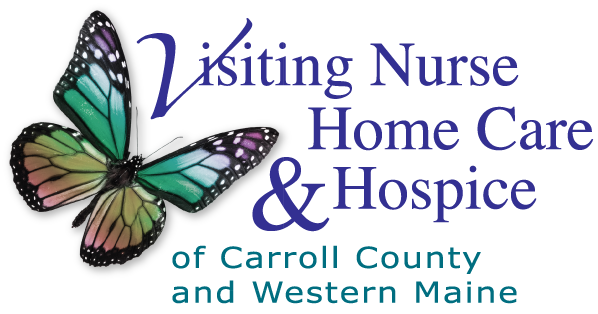It’s a New Year – Time to Update Your Advance Care Directives
January 23, 2024
)
January is a time for making resolutions and creating good habits for the new year. Consider this good habit – making an annual review of your advance care directives. If you haven’t looked at yours for a while, or if you haven’t created one, now is a great time to refresh advance care planning.
All adults should discuss and document their healthcare wishes in the event of a crisis. Accidents and acute illness can happen to anyone at any time, but far too few adults have done anything to plan ahead. Various studies suggest that only about a quarter of all adults have engaged in advance care planning.
Sue Ruka, RN, PhD, is a board member of Visiting Nurse Home Care and Hospice, and community health manager for Memorial Hospital in North Conway. Most patients are asked when checking in for a doctor’s appointment or hospital visit if they have advance care directives completed. Ruka encourages everyone to give that question a thoughtful answer. “It’s important to think about how long ago you filled out your directives. Is it still relevant? What has changed in your life that might impact that document? Make it a thoughtful response the next time you check-in.”
Ruka emphasized the importance of having these plans in place, especially for those who might not have close family or friends nearby. She added, “There are more single people out there. You can set it up to split responsibilities between financial decisions and healthcare decisions. When you’re single, planning ahead of time is even more important. If you have planning in place, asking someone to be your power of attorney is different. You know what you want and you want someone to carry them out. That’s different than leaving it to someone to figure it out for you. Someone is more likely to be a decision-maker if you have it all spelled out.”
Copies of your documents should be with your doctor, your hospital, or long-term care facility, the person you select as your agent, and members of your family. Ideally, the original documents should be stored where you keep your other important legal papers such as wills, birth certificates and social security cards. But they should not be stored in a safe, because this is a document you will want easily accessed.
It’s easy to get your advance care directives created or updated. Local resources include:
- Visiting Nurse Home Care and Hospice – Those who are home-bound can schedule a session with an advance care directive specialist Jennifer Robison who can visit the home. Fill out a request form at https://tinyurl.com/VNHCHAdvanceDirectives or call 603-356-7006. VNHCH’s Jennifer Robison emphasizes that the service is free and you don’t have to be an active client of VNHCH. She recommends that every five years, or anytime you have a major medical event or change or diagnosis, you should review your advance care directives if you already have one.
- Saco River Medical Group – Services are offered by Joan Lanoie, a certified Advanced Care Planning Facilitator. Joan has assisted folks in the preparation of Advance Directives and Living Wills for over 8 years. Joan is also a board member for Visiting Nurse Home Care and Hospice. For more information or to schedule a time, call 603-447-3500. You don’t have to be their patient to do so.
- Gibson Center for Senior Services – Joan Lanoie also provides advance care directive services here. Appointment can be made by calling 603-356-3231.
- Memorial Hospital – Sue Ruka and Alana Illsley help patients with advance care directives. Call 603-356-5461 ext. 2333 for more information.
Sandy Ruka, Executive Director of VNHCH, added, “It may be difficult to talk about it, but it can make a bad situation easier for loved ones and family. While advance care planning includes decisions around end-of-life care, it also includes an individual’s wishes for any event in which they cannot speak for themselves. Now is a great time to think about this important topic so you’re prepared for whatever the new year brings.”
What is Advance Care Planning?
Advance care planning is making decisions about the care you would want to receive if you become unable to speak for yourself. These are your decisions to make, regardless of what you choose for your care, and the decisions are based on your personal values, preferences, and discussions with friends and family.
Advance care planning involves having a conversation with your loved ones about your preferences, and then documenting them with a document called an Advance Care Directive. In order to complete an Advance Care Directive you must identify the types of treatments you want and don’t want at the end of your life. It’s comprised of your Living Will and Health Care Proxy.
A Living Will details the types of medical treatments you would like or not like at the end of life, specifically in terms of life-support treatments.
A Health Care Proxy is someone who will make healthcare decisions on your behalf if you are no longer able to make your own decisions.
For more information about VNHCH services, visit the website at www.vnhch.org or call 603-356-7006 or 800-499-4171.
